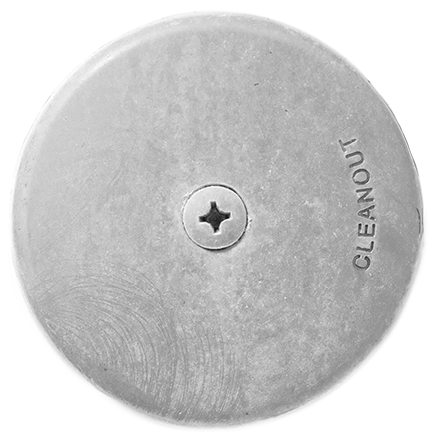Our Assassin
By Mark Brazaitis
We gave him one instruction and one instruction only: Kill Hitler.
“If you kill Hitler,” we told him, “you will save millions of lives and change the course of world history!”
It wasn’t like we were asking him to infiltrate the Nazi government in order to have a clear shot at the adult, dictatorial Hitler. We were sending him back to a time when Hitler was a baby. All our assassin had to do was kill a baby!
Yes, it sounds horrible—and, in the abstract, it is, although, sadly, babies are killed, via violence and human indifference to illness and poverty, every day. But it was baby Hitler about whom we were talking. And even if Hitler proved to be a cute baby—we were cognizant of the fact that most babies, sadly for our mission, are cute—we instructed him how to make his task psychologically palatable: “As you stand over his cradle, pistol in hand, imagine the cute baby below you sporting a thin, stamped-sized, black mustache. If you cannot imagine it, draw it. Here’s a Sharpie.”
Yes, we did—we handed him a Sharpie. He had all he needed: a pistol and a Sharpie.
Thanks to our invention, WingsOfTime®, for which H.G. Wells was the inspiration, our assassin traveled back in time—all the way to May 1, 1889, all the way to the town of Braunau am Inn, on the Austrian-German border. So far, so good. But instead of storming Hitler’s house in the dead of night and assassinating the infant who would become a mass murderer, as he’d been trained over the course of sixteen weeks to do, our assassin stopped for a beer at the Stadtgasthaus Schnaitl, a pub (or Gasthaus) housed in what looked like a chapel. “The building was quaint and even pretty,” he explained in his post-mission debriefing. “And I was thirsty.”
Although this was an unauthorized deviation from the plan, it wasn’t necessarily a mission-killer. What was a mission-killer, however, was Helga. Yes, Helga was her name.It wasn’t even Heida or Herminia, something in the same neighborhood as poetry. Helga! She was a barmaid with, it’s true, thick, corn-colored hair and a smile as bright as a nuclear flash. (Forgive us our simile, but, because of our mission’s failure, we had to fight World War II. Thank you, Helga!)
Contrary to rumors within the five-pointed headquarters of our agency, our assassin and Helga did not sleep together in her parents’ barn that night. Instead, he began a rigorous, traditional courtship that, six months later, culminated in their marriage, an initially awkward but ultimately satisfying wedding night (they were both virgins), and a honeymoon—beginning new year’s eve, no less—in Munich.
Our assassin never even stepped foot in Hitler’s house. He never had to face the awful but necessary chore of murdering an infant, mustachioed or not. He failed completely. And all because he fell in love—a love for which, as he confessed, he lost his mind, a love that obliterated from his consciousness any thought whatsoever that anyone, anywhere, could hate a single soul.
There is no happy ending here. If you’ve read the history books, you know the story.
To fill you in on what you don’t know (and what is, frankly, irrelevant): It was only when Helga became pregnant that the two of them returned to the present. Why? Immunizations. Our assassin was worried about their baby contracting measles and smallpox. (Meanwhile, because of a navigation problem with WingsOfTime®, the next man we trained to murder Hitler wound up in Caligula’s Rome. The nightlife apparently proved irresistible, because we have an account from Suetonius of “the barbarian Michael Robinson Jr. introducing the emperor to what he called ‘craft beer’ and being an honored guest at several of Caligula’s annual Forty-Orgies-in-Forty-Nights festivals.”)
Our assassin and Helga remain married. They now have three children and are living in a New Jersey suburb. Although our assassin avoids watching documentaries about World War II, he often imagines time-traveling to the evening of April 14, 1865, and surprising John Wilkes Booth with a kick to the groin and a Latin phrase meaning, “Ha—this failed assassin foils an assassination!”
Mark Brazaitis is the author of seven books, including The River of Lost Voices: Stories from Guatemala, winner of the 1998 Iowa Short Fiction Award, The Incurables: Stories, winner of the 2012 Richard Sullivan Prize and the 2013 Devil’s Kitchen Reading Award in Prose, and Julia & Rodrigo, winner of the 2012 Gival Press Novel Award. His latest book, Truth Poker: Stories, won the 2014 Autumn House Press Fiction Competition. He wrote the script for the award-winning Peace Corps film How Far Are You Willing to Go to Make a Difference?
Brazaitis’ writing has been featured on the Diane Rehm Show and the Leonard Lopate Show as well as on public radio in Cleveland, Iowa City, New York City, and Pittsburgh. A former Peace Corps Volunteer and technical trainer, he is a professor of English and the director of the West Virginia Writers’ Workshop at West Virginia University. (Updated September 2015)





































